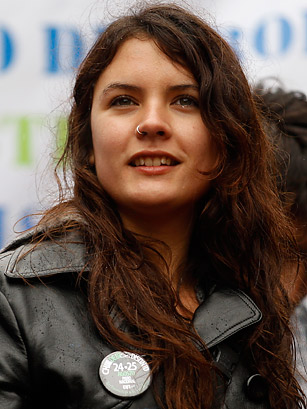
Chile was riding as high as the Andes when 2011 began. Widely touted as Latin America's most developed nation, it had won global acclaim a few months earlier for the miraculous rescue of 33 trapped miners. Thanks in part to that feel good story, billionaire President Sebastián Piñera enjoyed a 63% approval rating. But festering behind the fortunate façade were long unaddressed issues of inequality that belied Chile's First World status. Tens of thousands marched to protest Piñera's backing of a massive hydroelectric dam in pristine Patagonia, which seemed to symbolize the country's overindulgence of big business. The real hot button, however, was access to quality education — and during Chile's southern hemisphere winter, students took to the streets en masse to force Piñera to address their grievances. Led by a charismatic 23-year-old, left-wing undergraduate, Camila Vallejo, the uprising, which has witnessed violent clashes between police and demonstrators, has grown into a broader demand for structural change in Chile. It has also sent the center-right Piñera's approval rating plunging as low as 27% (currently 31%), while as many as 79% (currently 67%) of Chileans have said they back the student protesters.